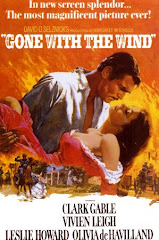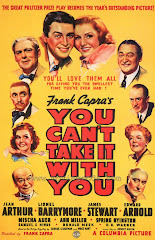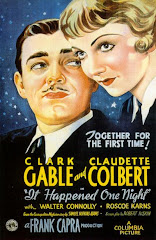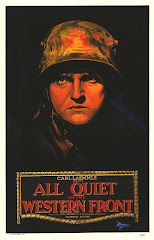Director: Laurence Olivier
Cast: Laurence Olivier, Jean Simmons, John Laurie
Genre: Drama
Other Nominees: Johnny Belinda, The Red Shoes, The Snake Pit, The Treasure of the Sierra Madre
Genre: Drama
Other Nominees: Johnny Belinda, The Red Shoes, The Snake Pit, The Treasure of the Sierra Madre
Milton Shulman said in his review of the 1948 adaption of William Shakespeare’s Hamlet that to some it will be considered one of the greatest films ever made and to others it will disappoint deeply. After giving the film some thought I could understand how people could feel either way.
Before I get to my take on why it could be one of the greatest films ever made or why it could disappoint deeply, here is a brief summary of events: On the island of Elsinore we find the Danish prince Hamlet who is in a deep depression. His father had died only a few short months before and Hamlet is furious at his mother’s decision to remarry his uncle Claudius. The queen Gertrude and her new king seem content to forget Hamlet’s father and move on with their ruling of the state while poor Hamlet is clearly still in mourning and very upset. It is while in this frustrated and angry state of mind that Hamlet hears news of an apparition that is appearing nightly on the castle walls. Upon investigating he discovers the ghost of his father who reveals to him a shocking secret, one that demands swift action. The story centers on Hamlet’s response to this information and the disastrous events that play out. Since first appearing on stage the character of Hamlet has become the epitome of procrastination. This film is a study of the impact his inaction has on both his own mental state and on everyone around him.
Why it could be one of the greatest films ever made…
For me there are two reasons why people would consider this adaption great. First, you have those who rightly recognize the performance from Laurence Olivier as Hamlet as being probably the best incarnation of the Danish prince to date. I have seen Mel Gibson and Kenneth Brannagh’s versions of Hamlet, but Olivier stands above time in terms of sheer passion. In the earlier parts of the film Olivier is brilliantly depressed as the suffering Hamlet and dispels for the audience any notion that this is simply a phase of sadness and grief, as Gertrude attempts to persuade him. Olivier shows us a deep anguish and the thoughts of suicide that are spoken are legitimately disturbing as a result of it. Olivier’s prince is not simply suffering with teenage melodrama but instead is deeply unsettled when he sighs “how weary, stale, flat and unprofitable, seem to me all the uses of this world!”
That same deep anguish is partly responsible for leading young Hamlet to fake madness, or to put on an “antic disposition”. One of the aspects of the play that I always enjoyed was the blurring of the lines between Hamlets pretending to be mad and being overwhelmed by an actual insanity as disasters unfold. By the second time the ghost of his murdered father appears to Hamlet the nature of his apparent instability is brought into serious question. Other characters were able to witness the first appearance of the wretched spirit wandering the battlements but this second appearance is seen by Hamlet only while his equally emotionally disturbed mother sees nothing. Here Olivier shifts his performance and the morose Hamlet is replaced with a frantic and uncontrollable Hamlet. Without the powerful performance of depression up front this frenetic performance would fall flat but Olivier shows us a very believable man whose sanity is on the verge of collapsing. Of the adaptions I’ve seen this version best displays the interpretation that we are witnessing a very real descent into madness and as the King Claudius puts it “madness in great ones should not unwatched go.”
Another aspect of the movie I considered to be brilliantly performed and directed was the voiceover work for some of Hamlets famous speeches. For these soliloquies in stage productions, the actor playing Hamlet would oftentimes physically separate himself from the other characters and speak directly to the audience. This separation, sometimes as simple as a step away from the main body of action, was a deliberate means to inform the audience that what they were hearing were Hamlets thoughts and not his spoken word. For this film version I thought the mixing of voiceover and spoken word was a great way to let us into the tortured mind of the prince while making us aware that the other players were not hearing these words. It is a risky approach that could have ended up feeling very kitschy but Olivier brings a professionalism that makes it work well. It can be seen most effectively in his famous soliloquy that begins “to be or not to be that is the question…”
The second reason why this film deserves massive praise is the cinematography used to bring Elsinore to the screen. In the first act we meet the murdered ghost of King Hamlet, lost among the battlements of his castle. The ghost appears as a rotting corpse in armor and looks fantastic on screen. It seems to tower over the terrified guards while being perpetually lost in a thick and swirling fog. When it finally speaks to Hamlet and tells of how it met its end the effect is satisfyingly horrific. I always loved the sheer drama found in the line “the serpent that did sting thy father’s life now wears his crown” and thoroughly enjoyed how it manifested itself here.
The sets are stunning with the interior of the castle being an absolute maze where all rooms are connected by twisting stairways and multiple exits. It appears that no matter which exit you take from one room you will inevitably end up where the action is next unfolding and the camera takes liberties in exploring the different paths available to you as it moves from scene to scene. Throughout the play characters are required to hide behind curtains and listen around corners and this castle is an endless source of secret hiding places. The whole structure brings to mind M.C Escher’s Relativity pictured below and the labyrinthine nature of the castle begins to act more and more as a reflection of Hamlets suffering psyche as the movie progresses.
Why it could deeply disappoint…
I can present two reasons that were cause for film can been criticized. Both have the common theme of deviating from the sacred to some source material.
When performed in its entirety Hamlet runs at about 4.5 hours and yet Olivier’s adaption comes in at just over 2.5 hours. This is the first and greatest cause for concern for some people. The argument is simple… a lot of people feel that Olivier simply cut too much from the play. The omissions from the original material are considered unnecessary by many with lines of dialog cut, altered and even allocated to different characters. The latter decisions to have different characters speak lines were mostly made as a result of the original character being cut from this version altogether. Most notably absent from this version are Rosencrantz and Guildenstern who are hired by the king to investigate Hamlets apparent madness. Also missing is the prince Fortinbras and an entire political subplot that shows us more insight into the kings character. These two cuts alone account for most of the missing action but throughout the film dialog and scenes are consistently shortened. In the end these decisions were bound to upset the purists but I have to admit that even I am a little concerned about the simplification of the story.
The film opens with an excerpt from a speech that is repeated later but then adds a simple statement that is not from the original text (you may have guessed as much when I said it was a simple statement). Olivier appears to sum up the play as being “a tragedy of a man who could not make up his mind”. Personally I think that if the film is to be considered offensive this is where the rankest offense lies and I would agree with the argument that the story is so much more layered than this simple summation. While I have always thought the movie is an extreme warning against procrastination I do think it is somewhat disrespectful to sum it up as being about just that. I can understand how even those who are not purists may be led to question the decisions to cut material after hearing this line at the beginning.
The second reason for criticism, and a reason why this film sits uncomfortably with some people, revolves around the relationship between mother and son, Gertrude and Hamlet. The theme of incest is repeated throughout the play but restricted mostly to Hamlets thoughts on his mother marrying his uncle. He speaks many times on the matter describing his uncle as “that incestuous, that adulterate beast” and describing Denmark as “a couch for luxury and damned incest.” Olivier however clearly interprets the relationship between Hamlet and his mother Gertrude as being incestuous in nature and that notion is played up in this adaptation with some intense physical encounters between the two. I can understand the argument for the interpretation being true but I can certainly understand people being upset, not so much at the interpretation itself, but at the inclusion of it in the film when its existence in the original play is one of those still hotly debated topics.
Ultimately what you make of Laurence Olivier’s film all depends on what side of this argument you fall on…
You may feel that, with such a magnificent performance and a visually stunning experience, any deviations from or interpretations of the original material are justified. After all you could argue that the worst that can happen is that this film inspires people to investigate that original material. And you could further point out that there is no written rule that a movie adaptation need stick so closely to its source material, something that we have seen countless examples of since this films release.
"He would drown the stage with tears,
And cleave the general ear with horrid speech,
Make mad the guilty, and appal the free,
Confound the ignorant, and amaze, indeed,
The very faculties of eyes and ears."
And cleave the general ear with horrid speech,
Make mad the guilty, and appal the free,
Confound the ignorant, and amaze, indeed,
The very faculties of eyes and ears."
Hamlet Scene 2 Act 2
On the other hand you may consider the works of William Shakespeare to be as close to perfection as they are going to get and in no need of altering. I can respect and tolerate the purists out there when you are dealing with these works. It may also be of concern to you when films attempt to make such works with a preconceived notion of what the audience will be capable of understanding. The “dumbing down” of material in film is also something we have seen countless examples of since this films release..
"This above all: to thine own self be true,
And it must follow, as the night the day,
Thou canst not then be false to any man."
Hamlet Scene 1 Act 3
And it must follow, as the night the day,
Thou canst not then be false to any man."
Hamlet Scene 1 Act 3
Up Next: All the Kings Men



















































